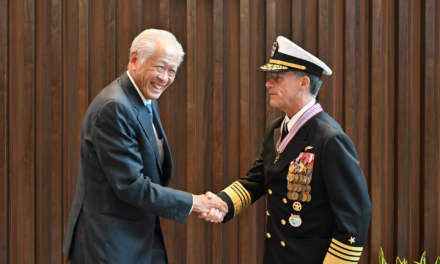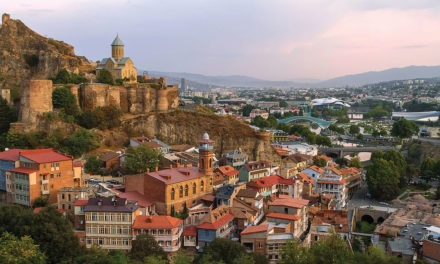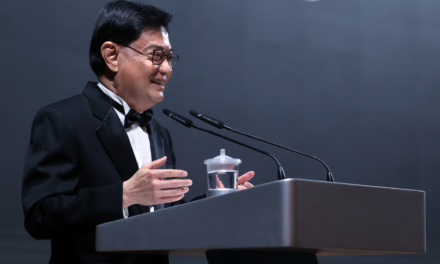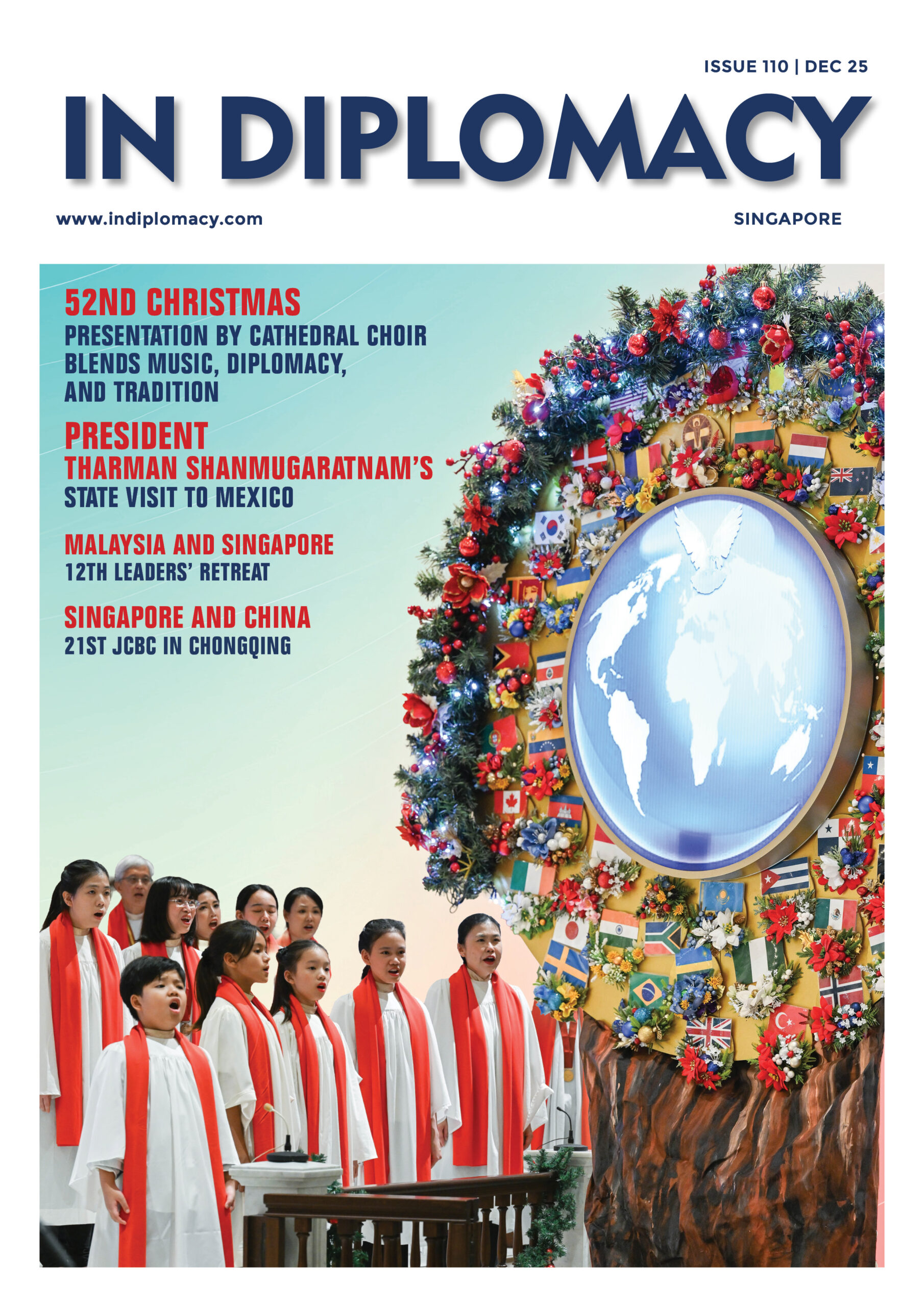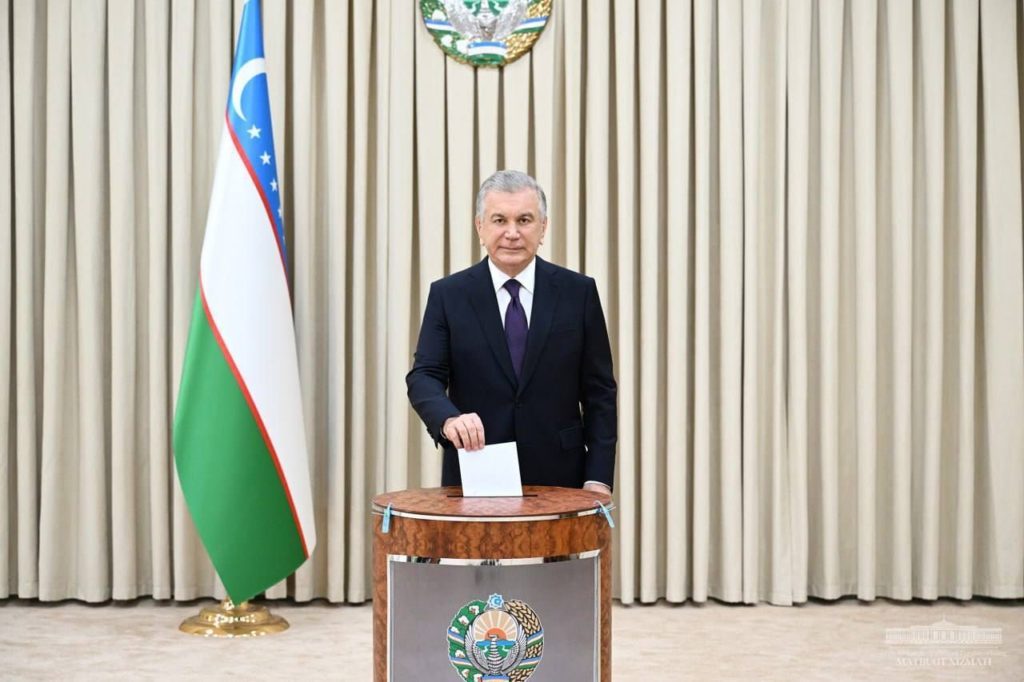
Uzbekistan holds successful referendum, passing new Constitution with overwhelming support and significant amendments to address critical issues such as human rights, social rights, and economic rights
By Nomita Dhar
Nomita Dhar was in Uzbekistan as a political observer for the referendum
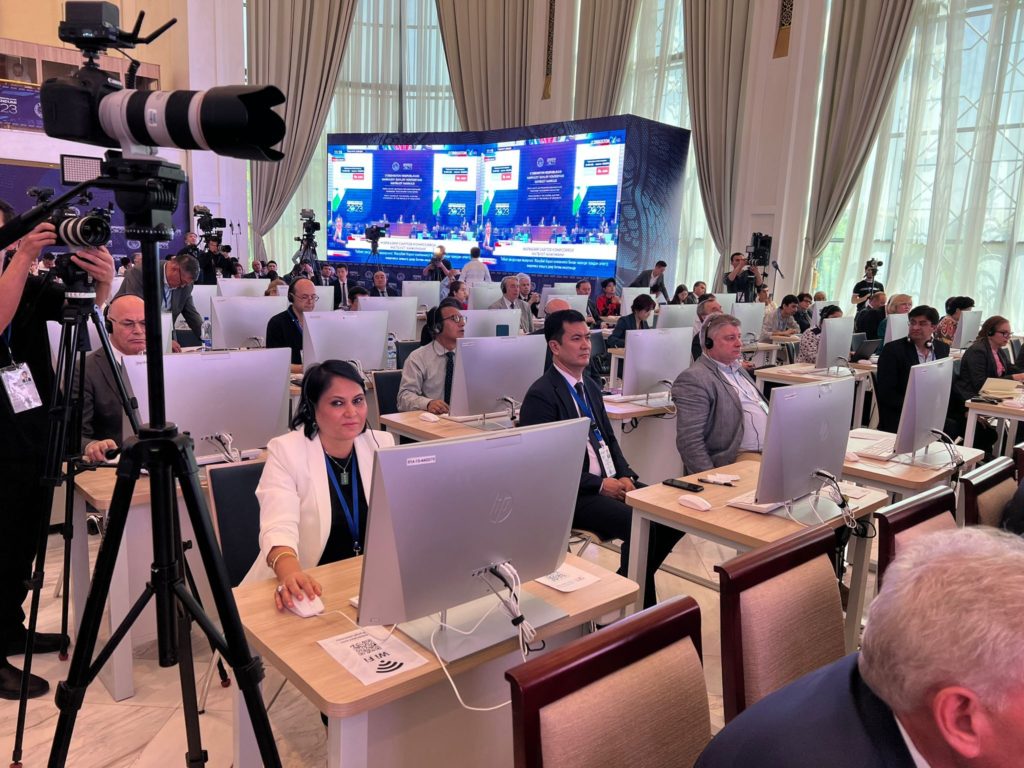
UZBEKISTAN has taken a significant step towards a more democratic and inclusive society with the recent referendum on a new Constitution. The referendum, held on April 30, 2023, saw an overwhelming 90.21% of voters in favor of the proposed changes. The referendum question asked citizens whether they accepted the Constitutional Law of the Republic of Uzbekistan “On the Constitution of the Republic of Uzbekistan,” which aimed to introduce significant amendments to address critical issues such as human rights, social rights, and economic rights, while strengthening the role of parliament and civil society institutions.
The referendum process was completely transparent and under public control, with 383 international observers directly observing the preparation and holding of the referendum. More than 43,000 representatives of the country’s five political parties and citizens’ self-governing bodies were able to directly observe the referendum. The Central Election Commission and other agencies responded immediately to the cases reported in the media and social media.
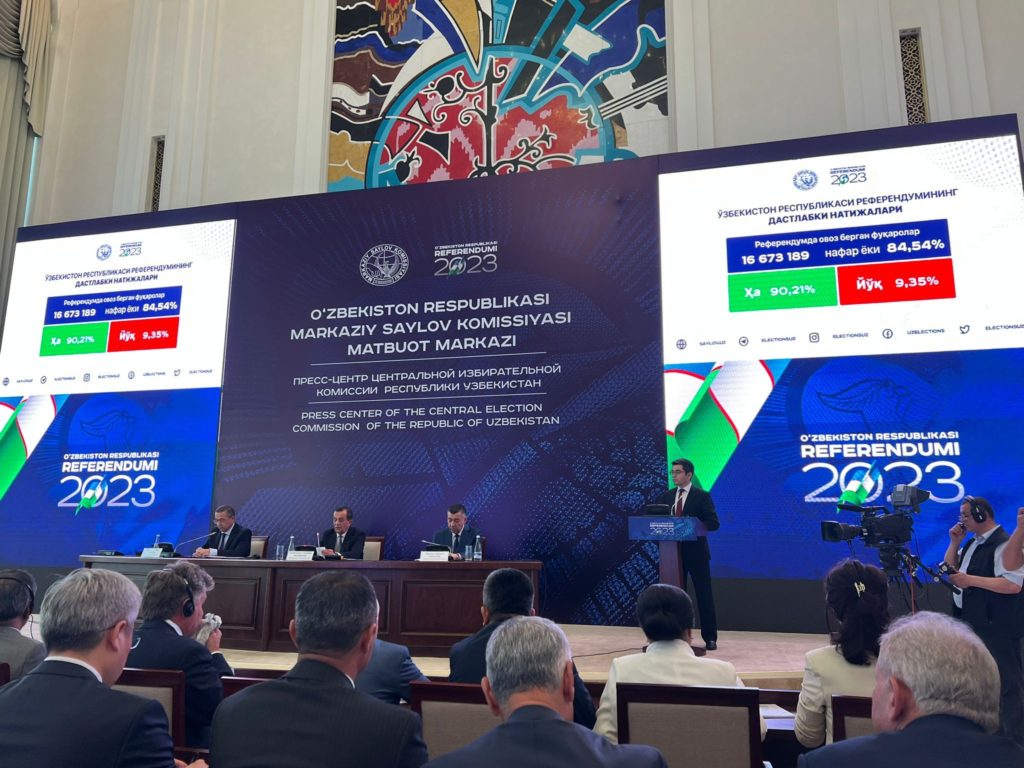
The newly minted version of the Constitution will lengthen presidential terms from five to seven years, allowing President Mirziyoyev to serve two more seven-year terms when his current tenure ends in 2026. Furthermore, proposals were initiated in the referendum to abolish capital punishment and protect against unlawful and indefinite imprisonment. The newly updated Constitution will see an increase in the number of articles from the current 128 to 155, with about 65% of the norms enshrined in the existing Constitution being updated.
These changes largely focus on ensuring and protecting personal, social, economic, political, cultural, and environmental rights and interests of citizens of different social strata. The updates aim to give fresh impetus to further democratize the public administration system, ensure human rights and freedoms, increase the role and responsibility of public authorities, and limit their powers by legal frameworks.
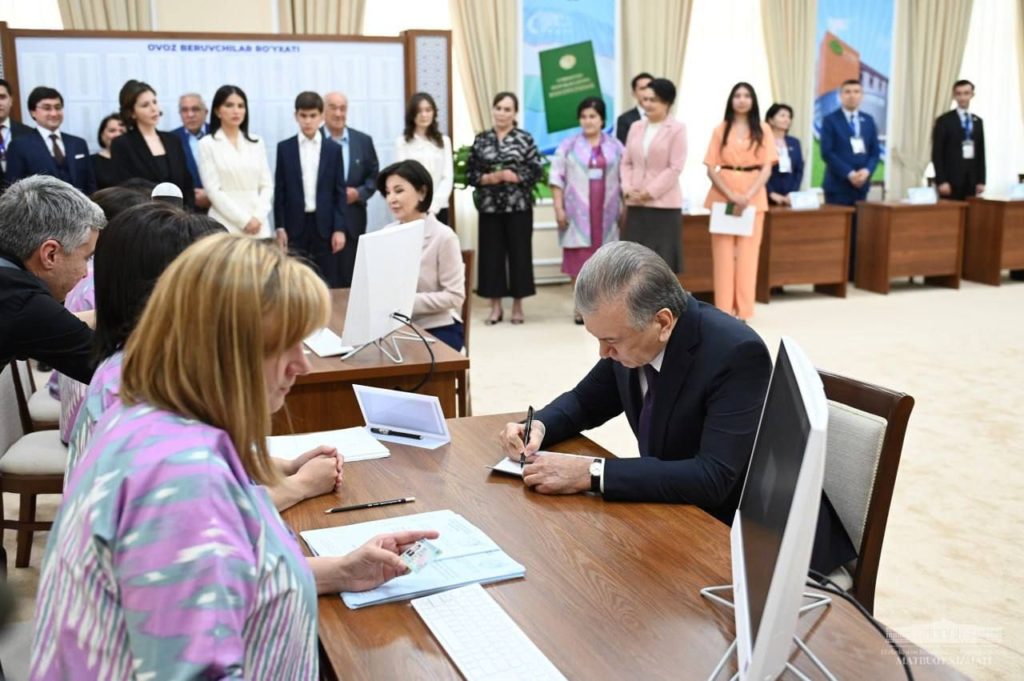
Overall, the referendum was a great success, with 16,673,189 citizens casting their votes, which corresponds to 84.54 percent of the total number of voters. According to the preliminary results of the referendum, 15,040,055 people or 90.21 percent voted in favor, 1,559,200 people or 9.35 percent voted against, and 73,934 ballots were declared invalid. The Constitutional Law “On the Constitution of the Republic of Uzbekistan” was adopted by the people of the Republic of Uzbekistan in the referendum.
The new Constitution marks an important milestone for Uzbekistan as it moves towards a more democratic and prosperous nation. The envisaged changes aim to set clearer guidelines for Uzbekistan’s development plans, including greater political openness and friendly relations with the world community and neighboring states. With the passage of the new Constitution, Uzbekistan is poised to make further strides towards achieving its goals of becoming a more democratic and inclusive society.
| Some Key Constitutional Changes Article 1: Statement of the fundamental characteristics of the Uzbek statehood: Uzbekistan is a sovereign republic, legal, social, secular, democratic state. Articles 17 and 18 Constitutional priorities reflected in the new edition of the Constitution: Central Asia is a priority for Uzbekistan which desires to maintain a geopolitical balance in Central Asia, as well as to form a balanced multifaceted system of relations with the leading states of the world and international organizations. – Now reads: ‘The Republic of Uzbekistan is a full-fledged subject of international relations. Its foreign policy is based on respect for human rights and freedoms, sovereign equality of states, non-use of force or threat of force, inviolability of borders, territorial integrity of states, peaceful resolution of disputes, non-interference in the internal affairs of other states, and general principles of international law, based on other recognized rules and norms. – Uzbekistan pursues a friendly and peace-loving foreign policy with all countries – The Republic may establish alliances, enter into commonwealths and other interstate structures, and separate from them in order to ensure the highest interests, well-being and security of the state and the people.’ Article 24 A new sentence to be added: ‘The death penalty is prohibited in the Republic of Uzbekistan.’ Article 25 ‘Detention, detention and imprisonment or other restrictions on freedom are allowed only by a court decision. A person cannot be detained for more than 48 hours until the court makes a decision. If the decision to detain or restrict freedom in another way is not adopted by the court within the specified period, the person should be released immediately.’ It is proposed to add Articles 26 1 and 26 2 these new articles specify the following: ‘Every person has the right to use the assistance of a lawyer according to his choice and at any stage of the criminal proceedings, and when the person is detained, his right to freedom of movement is practically restricted. The suspect, the accused or the defendant has the right to be informed about the nature and grounds of the accusation, to be confronted with the witnesses testifying against him, and to call the witnesses testifying in his favour.’ The norms of privacy in Article 27 are being strengthened: ‘Everyone has the right to privacy, personal and family secrets, honor and dignity.’ Article 40 1 is added: ‘Everyone has the right to a healthy and comfortable environment, truthful information about its condition, and compensation for damage caused to his health or property due to environmental violations. New article 49 introduced-establishes the right of the citizens to a healthy and favorable environment and reliable information about its condition. Article 50, devoted to the right to education Article 51 the right of citizens to higher education Article 53 A number of new norms related to economy and entrepreneurship are added ‘Entrepreneurs have the right to carry out any activity that is not prohibited by law, to independently choose the direction of their activity, to receive an unlimited amount of income from entrepreneurship’ Article 79 – The duty of the state is to create conditions for the intellectual, creative, physical and moral formation and development of young people, the realization of their rights to education, health care, housing, employment and recreation Article 90– proposes to extend the term of office of the president from 5 to 7 years. Article 93 adds the following to the powers of the president: – Send appeals to the Oliy Majlis on issues related to determining the most important strategic priorities of internal and foreign policy and their implementation; – Formation and management of the Security Council under the president; – Formation of the presidential administration, as well as advisory council bodies and other bodies under the presence of the resident. |

